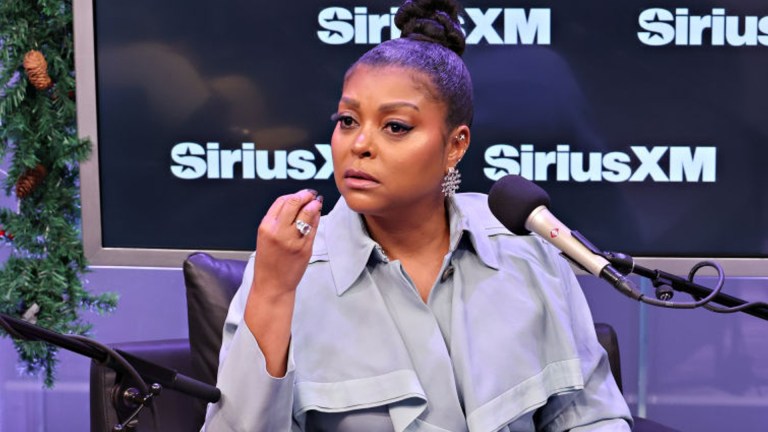Taraji P. Henson is candidly speaking out about the salary gap in Hollywood while expressing her frustration over being paid a fraction of what white actors are earning.
Henson’s career spans more than two decades in Hollywood, having starred in a string of blockbuster hits, including ‘The Curious Case of Benjamin Button,’ ‘Hidden Figures,’ and ‘The Karate Kid.’
But in a recent interview with Gayle King on SiriusXM, the actress says she’s continuing to fight for equal pay in the film industry because she still isn’t receiving equitable compensation, despite having comparable or even more impressive resumes than some of her white co-stars.
Taraji P. Henson Considered Quitting Hollywood
After being asked about the rumors of her potential retirement from acting, the ‘Empire’ star gave quite an emotional response. “I’m just tired of working so hard, being gracious at what I do [and] getting paid a fraction of the cost,” she said, stressing over the pay gap for Black actors. “I’m tired of hearing my sisters saying the same thing over and over.
“I hear people go, ‘You work a lot.’ I have to. The math ain’t mathing. Big bills come with what we do. We don’t do this alone. The fact that we’re up here, there’s a whole entire team behind us. They have to get paid.”
The severity of the situation in the film industry has left Henson to consider walking away from her passion and hard-earned career. Despite starring in award-winning movies, she continues to feel that people undervalue her work based on her pay.
Henson then broke down the salary division, explaining that one portion goes to the IRS while the other covers her team’s salary. Her answer strongly suggested that if she receives less than her asking price, the mother-of-one is subsequently left with very little for herself.
Taraji P. Henson’s Advocacy For Equal Pay In Hollywood
Once they have paid everyone, the salary earned from the role becomes much less than what people would expect.
“When you hear someone go, ‘Such and such made $10 million,’ that didn’t make it to their account,” she explained. “Off the top, Uncle Sam is getting 50 percent. Now have $5 million. Your team is getting 30 percent [of] what you gross, not after what Uncle Sam took. Now do the math. I’m only human. Every time I do something and break another glass ceiling, when it’s time to renegotiate I’m at the bottom again like I never did what I just did, and I’m tired. I’m tired. It wears on you. What does that mean? What is that telling me?”
Henson’s emotional confession, reflecting her personal experience with pay, underlines the deeply rooted pay issue in Hollywood’s structure. Yet, despite repeated calls for change and promises of improvement, the issue remains largely unresolved.
In 2008, Henson starred in the box office hit, ‘The Curious Care of Bejmanin Button,’ alongside Brad Pitt, which earned her several award nominations, including the Academy Award for Best Supporting Actress.
However, despite the film’s success and her noteworthy performance, Henson’s salary for the film was controversially low.
Henson’s Memoir Addressed Hollywood’s Pay Gap
In her memoir “Around the Way Girl”, Henson reveals that her pay for her role was “the equivalent of sofa change” and starkly contrasts the pay of Pitt and Cate Blanchett. Reports suggest that she only received 2% of what Pitt earned for the film, per Vulture.
This revelation sparked wide discussions about pay inequality in Hollywood and highlighted the issue of gender and racial wage gaps prevalent in the industry.
According to Revolt, Taraji P. Henson had asked for $500,000 to play the role of Queenie but only ended up receiving $100,000. After she paid her team and agent fees, she had just over $40,000 left from a film she spent months filming.
“‘I’m sorry, Taraji,’ Vince [her manager] said quietly when we finally connected. ‘They came in at the lowest of six figures. I convinced them to add in a little more, but that’s as high as they’d go,'” she wrote in her book. “There was one other thing: I’d have to agree to pay my own location fees while filming in New Orleans, meaning three months of hotel expenses would be coming directly out of my pocket. Insult, meet injury.”


